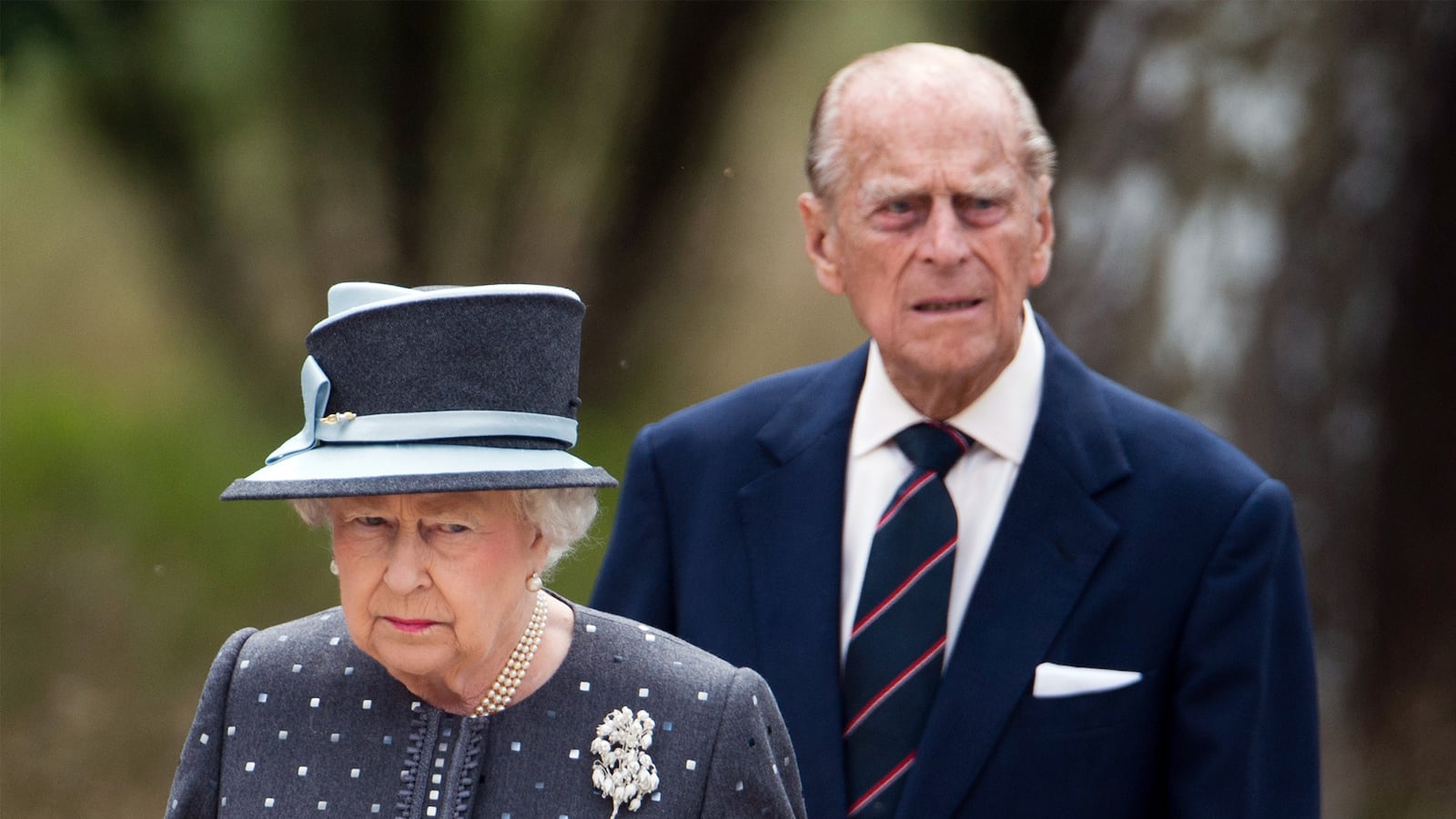When any man reaches the age of 94 it is perhaps not completely unacceptable to ask what will happen when he dies.
And while secret arrangements for the death of Queen Elizabeth, codenamed “The Bridge” have been in place since her coronation and are well-practiced—indeed last time the BBC did a ‘dry run’ one reporter accidentally tweeted out news suggesting Her Majesty had passed away—less well known is how the palace will handle the death of her consort, Prince Philip.
While rumors constantly swirl among the press pack that he is at death’s door—intensified of late by the reduced number of public appearances made over the summer and scheduled for the fall—Prince Philip has no intention of going toes-up any time soon. He is said to be enjoying his usual regimen of hearty walks at the royal summer retreat of Balmoral in Scotland—although it is not clear if he has been able to engage in any of his beloved carriage racing in recent months.
However, there is little use denying that Philip won’t be able to go on forever.
And while his death will have no constitutional implications—the only big noticeable change in public life will be that Prince Edward will inherit his father’s title, leading to less provocative public comments to and about students, Asians, windfarms, women, photographers “slitty eyes,” the disabled, etc.—it will be a huge moment of national reflection for the British nation.
The plans for how to handle Philip’s death are kept under constant review by senior courtiers, and were significantly updated and refreshed after the Duke was hospitalised with a nasty bladder infection in 2012, after the Golden Jubilee boat procession in freezing temperatures down the Thames made him ill.
It is believed that if Philip were to die in the night, the news would not be announced by Buckingham Palace until after 8 a.m. The BBC would be informed first, and tasked with making the official announcement.
Eight days of official mourning would be observed by all staff at the palace. Flags at major institutions and military establishments (especially naval ones, given the Duke’s service in the Royal Navy) would be flown at half mast, but the Royal Standard flag which flutters above Buckingham Palace when the Queen is in residence would not be lowered to half mast.
The Standard signifies the inviolability and continuity of the monarch, and the refusal to fly this flag at half-mast was the cause of much anger after the death of Diana. The impasse was eventually resolved when the Royal Standard above the Palace was replaced by the Union Jack (even though the Queen was still in residence and this change was in defiance of all convention) which can be flown at half mast. Such populist pandering would be an insult to Philip, the ultimate stiff upper lip merchant.
Although Philip would undoubtedly be entitled to a full state funeral like that bestowed on Margaret Thatcher or The Queen Mother, it’s the last thing he wants.
Philip’s aides have long said that he has adamantly insisted that he doesn’t want the ‘fuss’ of lying-in-state or a full state funeral.
The Queen would prefer Philip’s service to the nation to be celebrated with a state funeral, but will not go against her husband’s wishes.
Instead of being placed in Westminster Hall at the Houses of Parliament, his body is expected to lie in St James’s Palace where Diana, Princess of Wales, was laid for several days after her death in 1997.
The public will not be allowed to view the body.
He will be buried quietly in Frogmore Gardens in the grounds of Windsor Castle after a service for family and friends, including some Commonwealth countries’ heads of state at St George’s Chapel in the castle.
The Queen will enter an official period of mourning, believed to be eight days, during which she will stop work. Laws will not be given the Royal Assent, and affairs of state will be paused out of respect for her consort. After a further period of official Royal Mourning is over 30 days later, it is widely believed that Elizabeth, unlike Queen Victoria, who locked herself away in Balmoral after Albert’s death and was infrequently seen again, will resume public duties and engagements and things will carry on as normal—outwardly at least.
But the private mourning, her friends and courtiers concede, will last the rest of her life.






